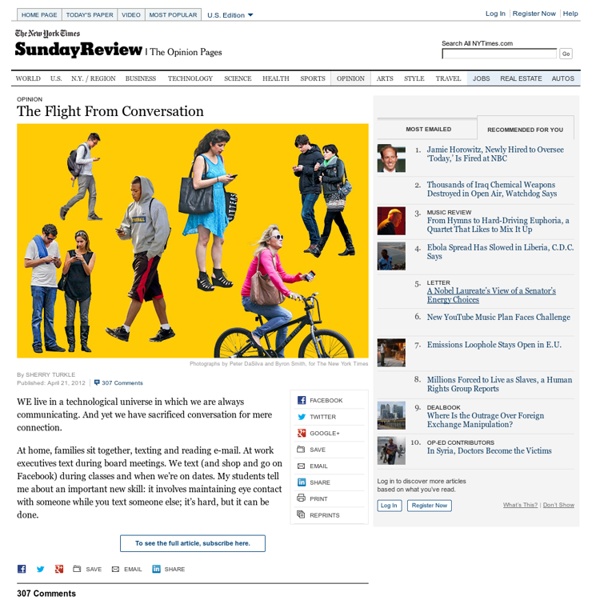Smart, dumb, candybar, flip, and brick: a visual history of mobile phones
For most of their history, mobile phones have been shrinking. Small meant portable; it even, in the not too distant past, was a sort of status symbol. Remember Motorola’s runaway hit, the ultra-thin Razr? But something funny happened on the smartphone’s way to success. Years ago, your colleagues might have laughed at you if you couldn’t fit your phone in your pocket. If screen sizes continue to grow, you might want to invest in bigger pockets, a bulkier handbag, a man purse, or even a whole new way to carry your phone. Correction: An earlier version of this article stated that the Razr was Nokia’s runaway hit.
Social intranet adoption: how to encourage usage in your organization - Intranet Blog - ThoughtFarmer | Collaborative Culture
the ANTHROPOLOGiST
Transform Your Employees into Passionate Advocates - Rob Markey
by Rob Markey | 10:49 AM January 27, 2012 Employee happiness is becoming a hot topic among CEOs and in boardrooms, and it’s about time. The current issue of Harvard Business Review, which includes a series of articles focused on employee happiness, is just one more sign of the growing recognition that happy, engaged employees are more productive and generate better outcomes for their companies. But there’s also a risk in all this attention to “happiness.” My colleagues and I agree with that. That’s an ambitious goal, of course. 1. Real engagement — passionate advocacy — comes from making customers’ lives richer, and there isn’t much that HR alone can do to help employees achieve that. 2. 3. And it isn’t just customer-facing personnel who can learn from customer reactions. Loyal, passionate employees bring a company as much benefit as loyal, passionate customers.
Fashionable Quote T-Shirts, Hoodies, Long Sleeve Shirts, and Bags by Quote Couture™
CEOs Who Tweet Held in High Regard
There may be new reasons for CEOs and CMOs to join the Twittersphere. According to a study by social media branding firm BRANDfog consumers and employees regard company leaders who engage on social media platforms positively. BRANDfog survey results indicate that consumers believe C-suite engagement in social media can benefit how they view a brand and its executive leadership. The majority of survey respondents, 78%, said CEO participation in social media leads to better communication, while 71% said it leads to improved brand image and 64% said it provides more transparency. In terms of importance, 86% of respondents rated CEO social media engagement as somewhat important, very important or mission-critical. A company’s social media presence also trickles down and influences purchase decisions. Selling social to the C-suite remains a challenge for many companies, though. Financial services firm ING Direct Canada is known for its tweeting CEO, Peter Aceto.
Invisible Design
Managers Need to Up Their Game with Social Media - Anthony J. Bradley and Mark P. McDonald
by Anthony J. Bradley and Mark P. McDonald | 11:47 AM March 26, 2012 Using social media to accomplish a meaningful purpose involves more than providing new technology and praying for success. Why? Unfortunately, this control is the antithesis of collaboration. While it sounds obvious that managers can compromise collaboration with prescriptive control, the relationship between resources, responsibility, and management is one of the most frequently asked questions in organizations looking to apply social media to achieving meaningful business purposes. Manager as Guide Effective managers in social organizations embrace a different style of management and leadership. Participation. Participation, purpose, and performance represent the goals for guiding management and the requirements for effective managers/sponsors in mass collaboration. Do you or your managers have what it takes to lead mass collaboration?



